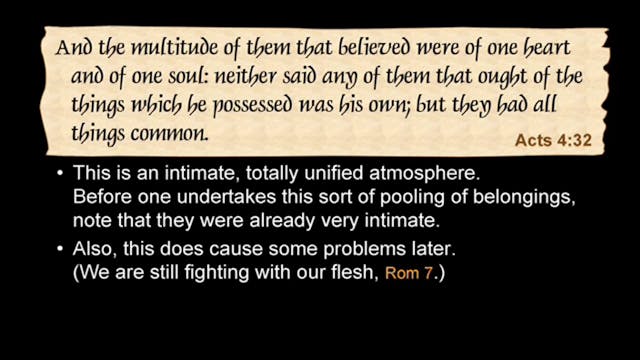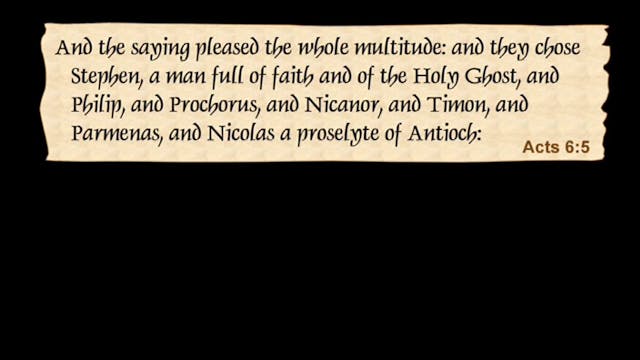Session 2 of 16
Acts - Chapter 2: Pentecost. Peter’s First Sermon.
Roman law required written documents containing all the pertinent background regarding a case, to precede an appellant's appearance before Caesar. There are some scholars who suspect that the two volumes penned by Luke were to comply with those requirements.
"Luke Volume II," often called "The Acts of the Apostles," completes the "Pentateuch of the New Testament." The traditional title of this book is, in some respects, a misnomer: it primarily deals with the "acts" of Peter and Paul. It really should be called "The Acts of the Holy Spirit."
This review will explore the continuing mysteries of Hag Shavuot in Acts 2; the surprises in the history lesson Stephen gives the Sanhedrin in Acts 7; the controversies dealt with in the Council of Jerusalem in Acts 15; the seamanship details which permitted the discovery of the anchors cut loose in Acts 27, as well as the adventures of Paul and his companions during his missionary journeys.
Presented by Dr. Chuck Missler.
© Koinonia House
Up Next in Sessions
-
44 - E03 - Acts: An Expositional Comm...
Session 3 of 16
Acts - Chapter 3 and 4: Lame Man Healed. Peter’s Second Sermon. First Persecution. Peter’s Address to the Sanhedrin.Roman law required written documents containing all the pertinent background regarding a case, to precede an appellant's appearance before Caesar. There are some s...
-
44 - E04 - Acts: An Expositional Comm...
Session 4 of 16
Acts - Chapter 5 and 6: Ananias and Sapphira. Second Persecution. The Arrest of Stephen.Roman law required written documents containing all the pertinent background regarding a case, to precede an appellant's appearance before Caesar. There are some scholars who suspect that the...
-
44 - E05 - Acts: An Expositional Comm...
Session 5 of 16
Acts - Chapter 6 and 7: Third Persecution. Stephen Addresses the Sanhedrin. First Martyr.Roman law required written documents containing all the pertinent background regarding a case, to precede an appellant's appearance before Caesar. There are some scholars who suspect that th...



